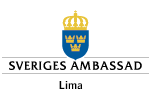 On Monday night, about 40 people were scattered on Balinese and Javanese teak and bamboo furniture in a room with soaring ceilings decked out with a bar, a pool table, bembe drums and ocean views on three sides. Golden light bathed everything, an easterly wind blew and seagulls glided above the water, but the gathering didn’t notice the setting sun from their tastefully appointed perch on Sir Richard Branson’s Necker Island.
On Monday night, about 40 people were scattered on Balinese and Javanese teak and bamboo furniture in a room with soaring ceilings decked out with a bar, a pool table, bembe drums and ocean views on three sides. Golden light bathed everything, an easterly wind blew and seagulls glided above the water, but the gathering didn’t notice the setting sun from their tastefully appointed perch on Sir Richard Branson’s Necker Island.
They were all fixated on a large screen, on which renowned Peruvian economist Hernando de Soto was presenting, via videoconference, a plan he and Peruvian presidential candidate Keiko Fujimori are proposing to help citizens title their property, such as land and automobiles. If such systems were rolled out worldwide, De Soto believes they would help bring $20 trillion of dead capital into the world economy and help lift people out of poverty globally.
He told tales of how the lack of land titles or a well-organized system for managing them kept citizens in certain countries from building credit or profiting from, say, oil, gas and gold rights on the land. He said it has also contributed to 70% of the Peruvian population living in shantytowns without running water, because piping water in requires knowing who will pay the water bill — and that can’t be determined without a title. And, he added, the majority of rapes of women in shantytowns occur when they go to outdoor bathrooms in the dark of night because there is no electricity.“
[Our titling project] has got to be organized in a way that we help our most impoverished citizens,” he said.
Everyone was so intent on the problems and proposed solutions, they didn’t notice till too late that night had fallen and the mosquitoes had begun feeding.
Discussion began.
Tomicah Tillemann, director of New America’s Bretton Woods II initiative, asked what a global rollout strategy would look like. De Soto responded that he had been invited by 43 European political parties to see how this type of project applies to the problems of migration and terrorism, noting that “ISIS protects the homes of poor people. Everybody forgets the reasons terrorists go ahead is because they give something,” he said, adding that when countries come to him with their crises, “we’re trying to put a package together with high technology, your technology, as a counter-violence, counter-poverty, pro-wealth [solution] in a language people can understand.”
--
Read the full articles on the website of Forbes


